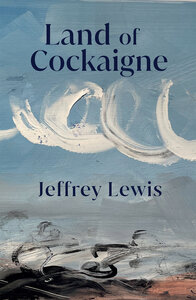2024 was another year when, for whatever reason, I just didn’t click with reading in general as much as I would have liked. There’s no point dwelling on it, I just hope this will turn around next year. In the meantime, I have picked out the following four highlights from the reading year:
Leonard Cohen: a Novel (2024), by Jeffrey Lewis
An aspiring songwriter named Leonard Cohen writes to his more famous namesake, and we learn of an intense relationship that ended in ambiguous circumstances. This is a novel of a life haunted by possibility: what if Leonard could step out of the celebrity’s shadow? What else could have happened in that relationship? Other realities, just out of reach.
Weasels in the Attic (2012-4) by Hiroko Oyamada
Translated from Japanese by David Boyd (2022)
This is the shortest book I read in 2024 – a collection of three stories – but it certainly carried its weight. Each story centres on a meal which acts as the focus for broader currents at play. For example, a tale told over dinner about weasels in the house points to deeper problems in a couple’s relationship. I found these stories to open out more the further I went in.
84, Charing Cross Road (1970) by Helene Hanff
Collected correspondence between American writer Hanff and the staff of a London bookshop. It suggests that Hanff could be spiky but also generous, and there’s an obvious warmth in her relationship with the shop. This book felt like a fascinating glimpse into an older world, with an unexpected echo of the future in a comment about buying books without leaving the typewriter.
Mary and the Rabbit Dream (2024) by Noémi Kiss-Deáki
If I were to choose a favourite book of 2024, I think this would be it. Mary Toft was a real-life 18th century figure who (for a time) was believed to have given birth to rabbits. In the novel, this is a scheme devised by Mary’s mother-in-law that gets beyond her control. What I like most is how the prose itself embodies the forces holding the characters in place, and enables Mary eventually to find a voice.
***
So, there was 2024. You can find my highlights of previous years here:
2023, 2022. 2021, 2020, 2019, 2018, 2017, 2016, 2015, 2014, 2013, 2012, 2011, 2010, and 2009.
You can also find me on social media at Instagram, Facebook, Bluesky, and X/Twitter. I wish you well for 2025!





Recent Comments